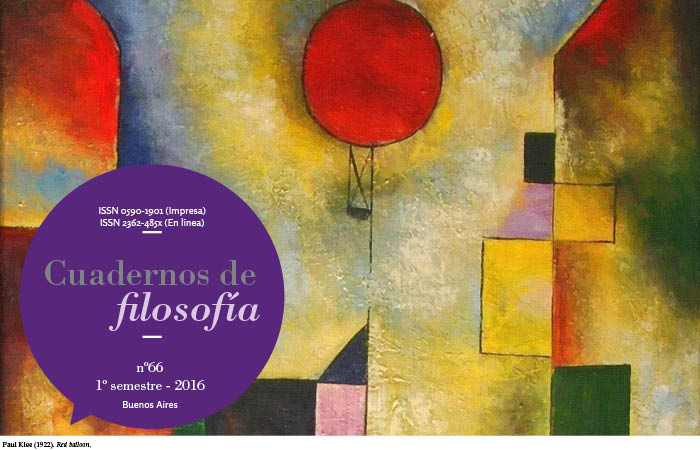<i>Omnis intelligentia est plena formis</i>. Repleción intelectual y mito de los ángeles en el medioevo tardío
Abstract
According to the ix(x) proposition of Liber de causis, every intelligence is full of forms. But neither the Liber nor Proclus’ Elementatio Theologica (the original context of this doctrine) attribute such repletion to the human intellect. The nóes are the ones that are full of forms, i. e., the incorporeal intelligences located in the intermediate grade between the One and the souls. Despite this, centuries later, Dante Alighieri and, especially, Nicholas of Cusa do not hesitate to assert that the human intellect is also full of forms. Furthermore, this proposition is the subject of many interpretations after the middle of the thirteenth-century, when the Liber becomes compulsory reading for university studies. What transformations —we will investigate in the present paper— were made by the thirteenth-century interpreters in the doctrine of repletion forms? Is it possible that these transformations have shaped the condition of possibility that some time later the human intellect also becomes full of forms? In this context, we will argue that the christian myth of angels had a decisive influence on this doctrine.Downloads
Los autores/as que publiquen en esta revista aceptan las siguientes condiciones:
Los/as autores/as [traductores/as] conservan los derechos de autor/a y ceden a la revista el derecho de la primera publicación, con el trabajo registrado con Licencia Creative Commons Atribución-NoComercial-CompartirIgual 4.0 Internacional, que permite a terceros utilizar lo publicado siempre que mencionen la autoría del trabajo y a la primera publicación en esta revista.
Los/as autores/as pueden realizar otros acuerdos contractuales independientes y adicionales para la distribución no exclusiva de la versión del artículo publicado en esta revista (p. ej., incluirlo en un repositorio institucional o publicarlo en un libro) siempre que indiquen claramente que el trabajo se publicó por primera vez en esta revista.
Se permite y recomienda a los/as autores/as a publicar su trabajo en Internet (por ejemplo en páginas institucionales o personales).
Políticas de detección de plagio
La colaboración de los y las editores/as, autores/as y evaluadores/as de esta revista y la guía de ética de los procesos editoriales se rige por los Principios de transparencia y buena práctica en publicaciones académicas del Committee on Publication Ethics (COPE) disponible aquí.
Todos los artículos enviados a esta publicación serán supervisados mediante una búsqueda online.







